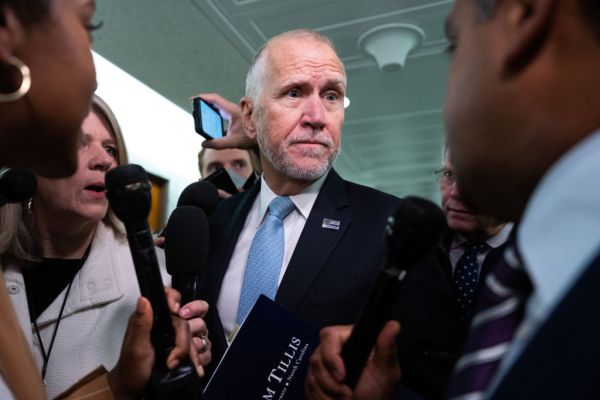Some of his colleagues believe he’s a national security threat. Others say he should step down. But none of them are quite sure of who, exactly, he is.
Rep. George Santos’ first two weeks in Congress were exactly what a freshman member wouldn’t want them to be: Six House Republicans from New York, along with local Republican officials, called on Santos to resign.
But it was an outcome of his own making. The New York Republican lied about his work history, family origins, college career, an animal charity, and his finances, among other items on his resume. The extent of the falsehoods is stunning, and it has other members rushing to distance themselves.
“I don’t think there’s any way he can possibly perform his duties, and the man’s got to be honest with himself and his constituents, Rep. Marc Molinaro, one of those New York Republicans, told reporters Thursday.
Fellow GOP New York Reps. Anthony D’Esposito, Nick Langworthy, Nick LaLota, Brandon Williams, and Mike Lawler have made similar comments.
But Santos is plowing ahead, pledging not to step down:
On Thursday, he amended that: If the roughly 142,000 voters who put him in office ask him to resign, he will.
Besides his resignation, few options exist to remove Santos from Congress. The House has the power to expel members with a two-thirds vote, but that’s only happened to five members in U.S. history. Expulsion is typically reserved for criminal violations, or during the Civil War era, disloyalty to the United States, the nonpartisan Congressional Research Services notes. The chamber could also take action to formally reprimand Santos for his behavior.
Yet Republican leaders haven’t shown much appetite for pursuing either option with Santos.
House Speaker Kevin McCarthy has said Santos won’t get prime committee spots, but he is standing behind the freshman’s decision to remain in Congress.
“I try to stick by the Constitution,” McCarthy said this week. “The voters elected him to serve.”
McCarthy is working with a tight majority, so every vote counts. (Plus, Santos helped elevate him to the speakership last week.) A resignation would temporarily cut McCarthy’s conference by one vote and trigger a special election that Democrats could win. That would affect the GOP conference’s ability to pass messaging bills and exert pressure in spending negotiations. A reduction in McCarthy’s majority amplifies the effect of every GOP absence, so it could even affect the legislative calendar or McCarthy’s ability to hold onto the speaker’s gavel.
McCarthy did say Santos’ case may go through the House Ethics panel, “but right now, the voters have a voice in the decision.”
Two Democrats from New York have requested an ethics probe into Santos’ potentially misleading and incomplete financial disclosures. Such investigations can take a long time, though. It could be months before an investigation reaches any kind of public conclusion.
Santos claims he’s “done nothing unethical.” But federal prosecutors say they are investigating his financial disclosures and use of campaign funds. It is unclear how Santos was able to lend his campaign $700,000, and information about his company is sparse. The New York Times has also identified unusual campaign disbursements, including $11,000 over four months for “apartment rental for staff,” for a house one neighbor said Santos himself had been living in. That could be a violation of rules banning the use of campaign funds for personal expenses.
Republican leaders will have to decide in the coming weeks which committees Santos will serve on. Some members want to uncover more information about his background before seating him on committees. And Wisconsin GOP Rep. Mike Gallagher told reporters this week Santos shouldn’t be on committees that handle sensitive information.
“I don’t think he should be on national security committees, but that’s for leadership to decide,” he said.
In the meantime, regardless of which committees he is seated on, as a House member Santos will have access to classified briefings and other forms of sensitive information related to a wide array of topics, such as the ongoing war in Ukraine.
Santos has said he will take whatever committees he can get: “I’m not a picky person.”
“Whatever committee is thrown my way, I am going to deliver 110 percent,” he said on Steve Bannon’s internet show Thursday morning. “I’m a workhorse. I’ve worked my whole life.”









Please note that we at The Dispatch hold ourselves, our work, and our commenters to a higher standard than other places on the internet. We welcome comments that foster genuine debate or discussion—including comments critical of us or our work—but responses that include ad hominem attacks on fellow Dispatch members or are intended to stoke fear and anger may be moderated.
You are currently using a limited time guest pass and do not have access to commenting. Consider subscribing to join the conversation.
With your membership, you only have the ability to comment on The Morning Dispatch articles. Consider upgrading to join the conversation everywhere.